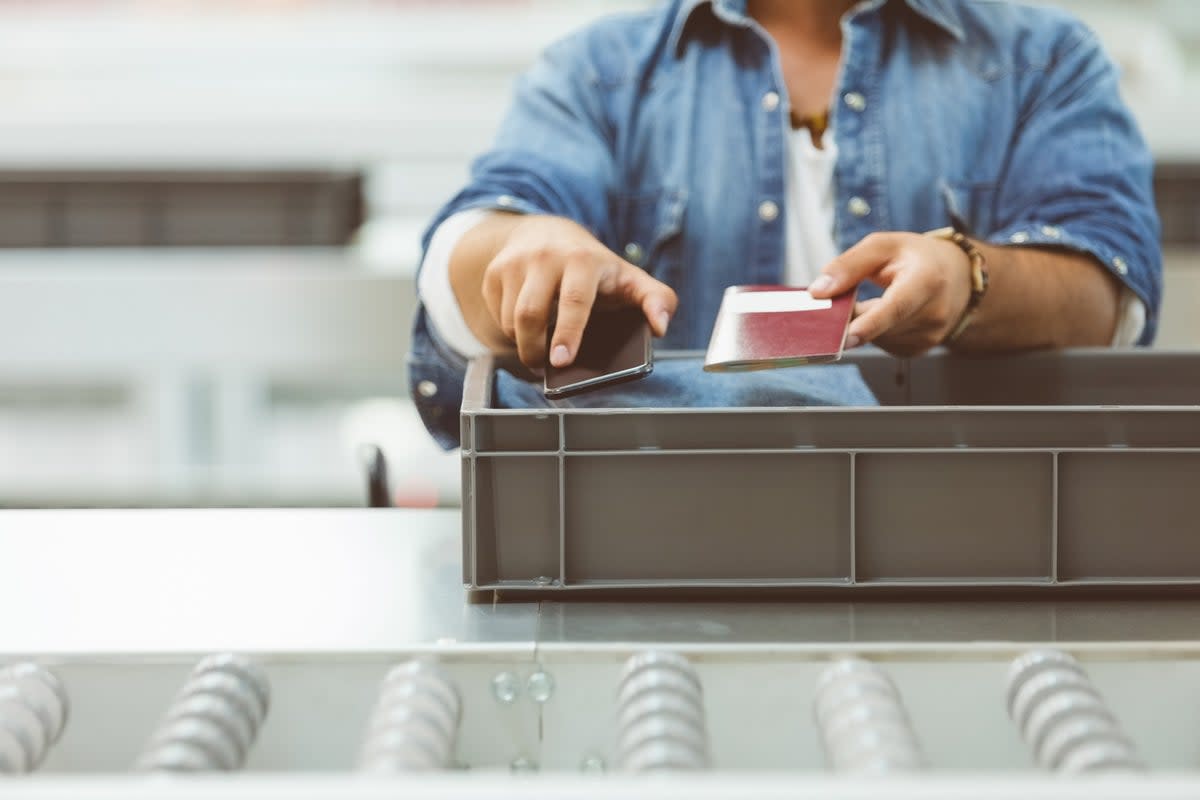Airport security liquid rule change delayed – again – as scanners aren’t ready

New security scanners that save passengers having to take liquids out of their hand luggage have been delayed by up to a year because some airports are falling behind.
The government has admitted that extensions have been granted to several large airports unable to meet its 1 June deadline to fully install the new technology.
The Department for Transport did not say which operators had been given the extensions, but it said it would fine those who missed the final target, of June 2025.
Airport security liquids rule – what is changing?
London City was Britain’s first major airport to introduce the devices, which allow passengers to take up to two litres of liquid in their hand luggage – ending the hassle of small 100ml containers that must be removed and placed in clear plastic bags.
Heathrow has previously said it expects to have new scanners in all security lanes this summer, while Gatwick expects to complete the programme by the end of March next year.
Manchester Airports Group, which runs Manchester, East Midlands and Stansted airports, said its scanners won’t be fully rolled out until 2025.
The DfT said post-Covid supply chain issues meant checkpoints could not be upgraded ahead of the deadline, which had already been extended from 2022 because of the pandemic.
Extensions have been given “on a case-by-case basis,” it said.
“It’s important we give those airports yet to meet the deadline a second chance to get the job done,” said transport secretary Mark Harper. “Until they do, passengers should continue to check before travelling.
“We recognise that installing the new security equipment at busy airports has been a logistical challenge, with some airports having to undertake significant construction work to allow the new, extremely heavy equipment to be fitted. In some cases, airports have been required to construct entirely new screening halls.”
Restrictions for liquids were introduced in 2006 following a foiled terror plot to blow up planes flying from London to the US with homemade liquid bombs. Travellers failing to adhere to them is one of the biggest causes of delays at airport security checks.
In 2019 Boris Johnson vowed the rules would be eased at major UK airports by 2022, allowing larger quantities and eliminating the need to have liquids separately scanned. Rishi Sunak’s government then extended that deadline to June 2024.
Modern scanners use computed tomography (CT) – the same technology as medical scanners – to analyse the molecular structure of the contents of a passenger’s bag. The nachines can detect any potential threat and present security officers with a three-dimensional image of the contents.
They can also analyse whether laptops and other electronic equipment present a danger.
At airports where the technology is used, liquids and laptops no longer have to be removed. The kit was first used in Europe at Shannon in the west of Ireland, where “liquids, gels, pastes, lotions and cosmetics in containers of any size” have been allowed through security since March 2022.
Newcastle, Teesside and London City airports are also now fully updated.
Karen Dee, chief executive of the Airport Operators Association, claimed airports were “making excellent progress” in installing the new machines, which cost several million pounds.
"As with any programme of this complexity, there are significant challenges, and we are happy the government has recognised these and agreed to extend timeframes for delivery where necessary,” she added.

